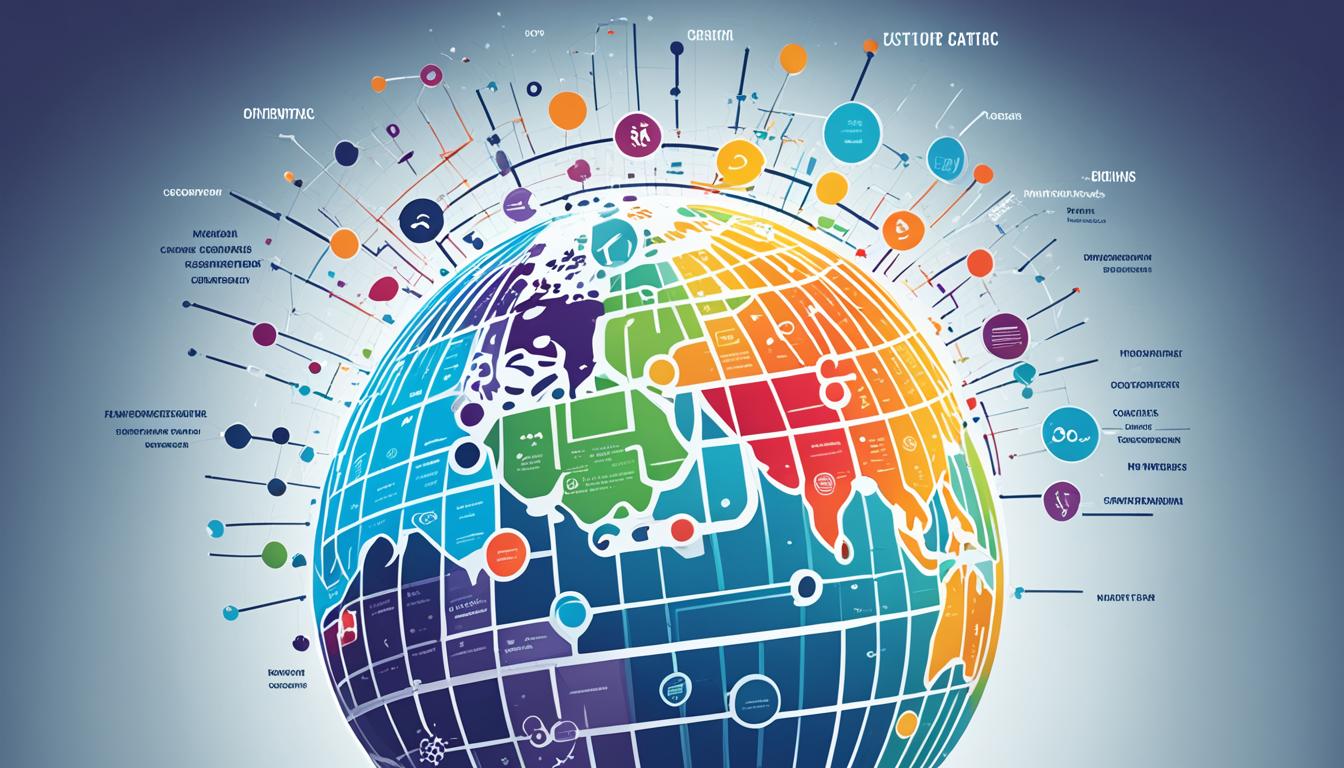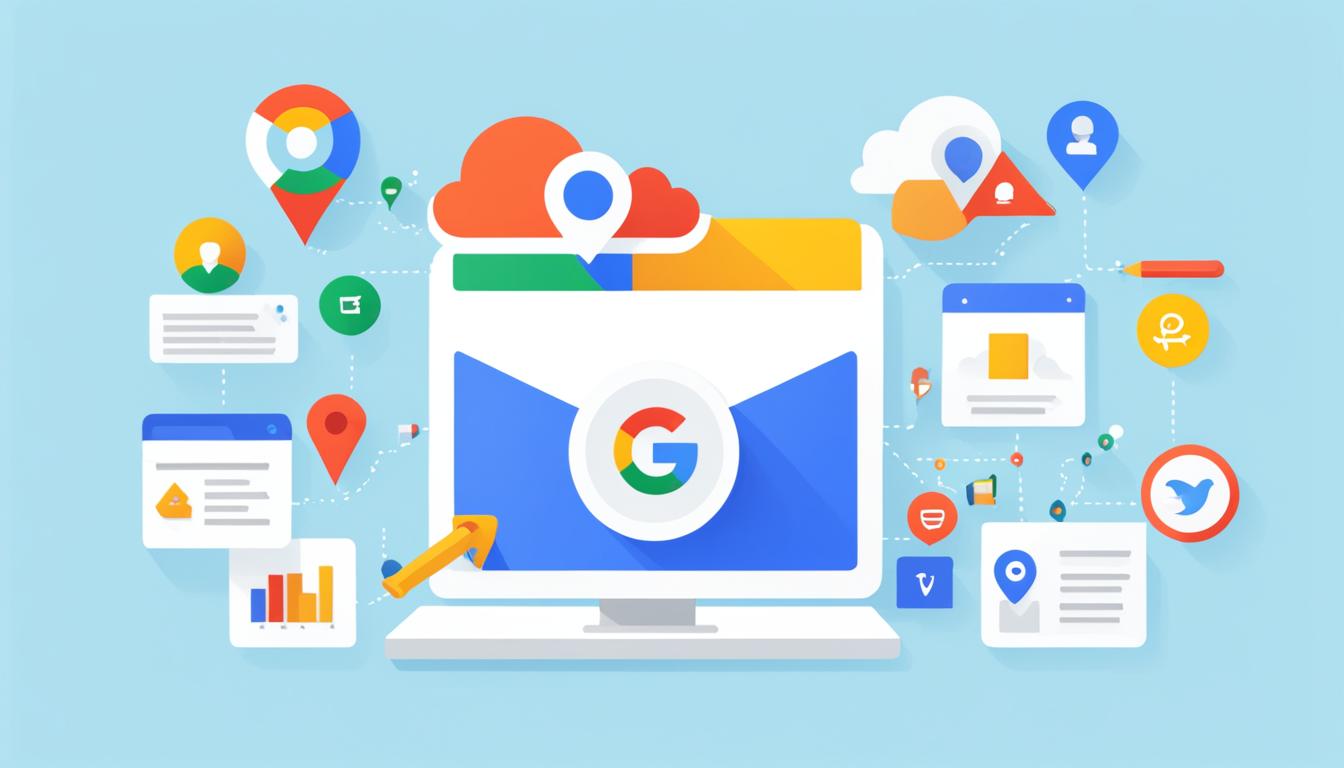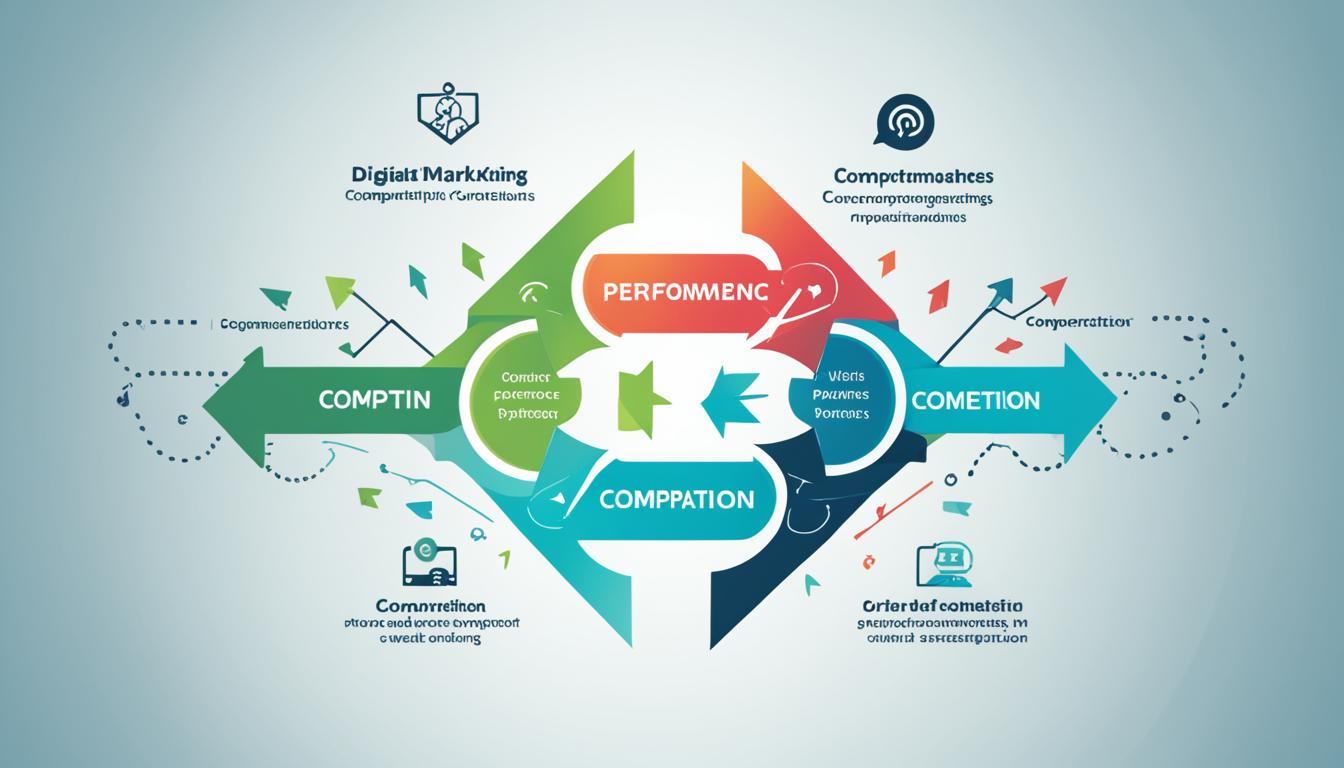A marketing agent is a person or organization responsible for promoting and selling a business or product to potential customers. They play a crucial role in creating awareness, generating leads, and driving sales. In this article, we will explore the definition, duties, and job description of a marketing agent, as well as the skills required to excel in this role.
Key Takeaways:
- A marketing agent promotes and sells products or services to potential customers.
- They perform tasks such as market research, developing marketing plans, creating advertising campaigns, and coordinating with sales teams.
- Strong communication and interpersonal skills are essential for a marketing agent.
- Marketing agents can work independently or as part of a larger marketing agency.
- They can earn a commission-based income and have the potential for career growth.
Types of Marketing Agents
Marketing agents are an essential part of promoting businesses and products to potential customers. They can work independently or as part of a marketing agency, offering their expertise and skills to drive sales and revenue. There are various types of marketing agents, each with their own specialization and focus:
Sales Managers
Sales managers oversee a team of sales representatives and work closely with them to achieve sales targets. They are responsible for developing sales strategies, setting goals, and managing sales processes to maximize revenue.
Account Executives
Account executives forge relationships with clients, managing their accounts and providing support throughout the sales process. They act as a point of contact between the company and the client, ensuring client satisfaction and fostering long-term partnerships.
Regional Sales Managers
Regional sales managers oversee sales operations in a specific geographic area. They manage sales teams, set targets, and ensure consistent performance across their region. They also analyze market trends and implement strategies to capitalize on opportunities.
Specialists
Marketing specialists focus on specific areas of marketing, such as social media, email marketing, or content creation. They have in-depth knowledge and expertise in their respective fields, allowing them to develop targeted and effective marketing campaigns.
Consultants
Marketing consultants are independent professionals who offer expert advice and guidance to businesses. They assess marketing strategies, identify areas for improvement, and provide recommendations to drive better results. Consultants often work on a project basis or for specific campaigns.
Managers in various industries
Marketing managers can be found in various industries, including retail, healthcare, technology, and finance. They are responsible for developing and executing marketing plans, managing budgets, and ensuring that marketing initiatives align with the overall business objectives.
Some marketing agents may choose to become entrepreneurs or business owners, offering their services independently. They leverage their expertise and industry knowledge to build their own client base and create successful marketing campaigns tailored to their clients’ needs.
| Type of Marketing Agent | Description |
|---|---|
| Sales Managers | Oversee sales teams and develop sales strategies. |
| Account Executives | Manage client accounts and build relationships. |
| Regional Sales Managers | Oversee sales operations in specific geographic areas. |
| Specialists | Focus on specific areas of marketing expertise. |
| Consultants | Offer expert advice and guidance to businesses. |
| Managers in various industries | Lead marketing efforts in different sectors. |
Duties and Responsibilities of a Marketing Agent
Marketing agents play a crucial role in promoting and selling products or services. They have a wide range of responsibilities that contribute to the success of their marketing campaigns and overall business growth.
Developing and Implementing Advertisements
One of the primary duties of a marketing agent is to develop and implement effective advertisements. This involves creating compelling content, visuals, and messaging that resonate with the target audience. Marketing agents utilize their creativity and market insights to craft advertisements that grab attention, evoke emotions, and drive customer engagement.
Conducting Cold Calls and Lead Calls
An essential aspect of a marketing agent’s responsibilities is conducting cold calls and lead calls. They reach out to potential customers, introducing the product or service, and initiating sales conversations. Marketing agents skillfully navigate these interactions to generate interest, address customer queries, and ultimately convert leads into sales.
Writing Pitch Letters and Press Releases
Marketing agents are responsible for crafting persuasive pitch letters and compelling press releases. These written materials are crucial for generating media coverage, attracting attention from journalists, and building brand visibility. Marketing agents use their communication skills to write clear and concise messages that effectively communicate the unique value propositions of a product or service.
Coordinating with Distributors
Effective coordination with distributors is another important duty of a marketing agent. They work closely with distribution partners to ensure the smooth flow of products or services to the target market. Marketing agents communicate with distributors, provide them with necessary marketing materials, and collaborate to promote and sell the offerings effectively.
Customer Service and Market Trend Analysis
Marketing agents also play a role in customer service, ensuring customer satisfaction, and resolving any issues or concerns that arise. Additionally, they monitor and analyze market trends and consumer behavior to identify opportunities and recommend changes to marketing and sales strategies. By staying updated on market dynamics, marketing agents can refine their approaches and adapt to changing consumer preferences.
Skills Needed for a Marketing Agent
Being a successful marketing agent requires a diverse range of skills and abilities. Effective communication skills and strong interpersonal skills are essential for engaging with clients, understanding their needs, and building lasting relationships. However, these are not the only skills that make a marketing agent successful.
Research skills are crucial for conducting market research, identifying target audiences, and staying updated on industry trends. Understanding consumer behavior is also vital for tailoring marketing strategies and campaigns to resonate with the intended audience.
Key Skills for Marketing Agents
- Communication skills: the ability to convey information clearly and persuasively, both verbally and in written form.
- Interpersonal skills: the capacity to build strong relationships, collaborate with team members, and negotiate effectively with clients.
- Research skills: the capability to gather and analyze data, conduct market research, and stay informed about industry trends.
- Understanding of consumer behavior: knowledge of how consumers think, make decisions, and interact with brands.
- Creativity: the ability to think outside the box, develop innovative marketing strategies, and create compelling content.
- Data analysis: proficiency in analyzing marketing data to measure the effectiveness of campaigns, identify areas for improvement, and make data-driven decisions.
- Time management: strong organizational skills and the ability to prioritize tasks to meet deadlines and manage multiple projects simultaneously.
- Adaptability: the flexibility to adjust strategies and tactics based on market changes, emerging trends, and new technologies.
Marketing agents who possess these skills are better equipped to navigate the dynamic and competitive marketing landscape. By combining these skills with industry knowledge and experience, marketing agents can effectively promote products and services, drive brand awareness, and generate successful marketing campaigns.
How to Become a Marketing Agent
If you’re interested in becoming a marketing agent, there are several educational paths you can take to pursue this career. The specific educational requirements may vary depending on the company or industry you work in. Here are some common options to consider:
- High School Diploma: While a high school diploma may be the minimum requirement for some entry-level marketing positions, further education can provide a competitive edge.
- Certificate or Associate Degree: Completing a certificate program or earning an associate degree in a relevant field, such as Marketing or Business, can provide you with a solid foundation of knowledge and skills.
- Bachelor’s Degree: Pursuing a bachelor’s degree in fields like Business Administration, Marketing, Communications, Psychology, or Criminal Justice can help you gain a deeper understanding of marketing strategies and consumer behavior.
- Master’s Degree: For more advanced marketing roles or positions in management, a master’s degree in Marketing or Business Administration may be beneficial.
While formal education is important, hands-on experience, internships, and on-the-job training are also crucial for gaining the necessary skills and knowledge to succeed as a marketing agent. Additionally, obtaining certifications, such as the Certified Sales Professional (CSP), can demonstrate your expertise and dedication to the field.
By combining education, practical experience, and ongoing professional development, you can enhance your chances of becoming a successful marketing agent.
| Education Level | Common Majors |
|---|---|
| High School Diploma | – |
| Certificate or Associate Degree | Marketing, Business |
| Bachelor’s Degree | Business Administration, Marketing, Communications, Psychology, Criminal Justice |
| Master’s Degree | Marketing, Business Administration |
Benefits of Being a Marketing Agent
Being a marketing agent comes with a range of benefits and rewards. Marketing agents have the opportunity to earn a commission-based income, which can be highly lucrative. In fact, some marketing agents make over $100,000 annually through their commissions. This provides them with the potential for financial success and stability.
Another advantage of being a marketing agent is the flexibility it offers in terms of work schedule. Unlike traditional 9-to-5 jobs, marketing agents often have the freedom to set their own working hours and manage their time effectively. This flexibility allows them to strike a better work-life balance and tailor their schedule to fit their personal needs.
Career growth is another appealing aspect of being a marketing agent. As they gain experience and establish a successful track record, marketing agents can progress in their careers and take on more challenging roles. This can lead to higher earnings, increased responsibilities, and greater job satisfaction.
Furthermore, marketing agents play a crucial role in helping businesses and products stand out in a competitive market. By utilizing their marketing expertise and skills, they create effective strategies to promote products and generate increased sales. This ability to make a significant impact can be personally fulfilling and professionally gratifying.
In summary, the benefits and rewards of being a marketing agent are substantial. From the opportunity to earn a commission-based income to the flexibility in work schedule and the potential for career growth, this profession offers a range of advantages. Marketing agents can make a tangible difference in the success of businesses and products, making it a fulfilling and rewarding career choice.
The Role of Digital Marketing in Today’s Landscape
With the rise of ecommerce and online shopping, digital marketing has become crucial for businesses. It allows companies to reach target audiences through various digital channels such as websites, social media, emails, and content creation.
Digital marketing provides the ability to measure and analyze data, improve brand visibility, reach more prospects, and enhance the overall customer experience.
By leveraging digital marketing strategies, businesses can effectively engage with their target market and build brand awareness. Through targeted advertisements and personalized content, companies can connect with customers on a more personal level, increasing the chances of conversions and sales.
One of the key benefits of digital marketing is the ability to track and measure the success of marketing campaigns. With various tools and analytics platforms available, businesses can monitor the performance of their digital marketing efforts and make data-driven decisions to optimize their strategies.
Furthermore, digital marketing allows businesses to reach a broader audience compared to traditional marketing methods. With the widespread use of the internet and social media platforms, companies can connect with potential customers from around the world, breaking geographical barriers and expanding their market reach.
Another advantage of digital marketing is its cost-effectiveness. Compared to traditional advertising channels such as television or print media, digital marketing offers more affordable options for businesses, especially SMEs with limited marketing budgets. This enables smaller businesses to compete with larger organizations on a more level playing field.
In summary, digital marketing has become an essential component of any successful marketing strategy in today’s landscape. It provides businesses with the opportunity to reach their target audience, measure campaign performance, and drive brand growth. By embracing digital marketing, businesses can stay competitive in the digital age and capitalize on the vast opportunities it presents.
Importance of Hiring a Digital Marketing Agency
When it comes to navigating the ever-evolving digital landscape, hiring a digital marketing agency can be a game-changer for businesses looking to stay ahead of the competition. A digital marketing agency specializes in all aspects of marketing through digital channels, providing businesses with a comprehensive range of services to help maximize their online presence and drive growth. So, why is hiring a digital marketing agency important? Let’s explore the benefits:
1. Expertise and Insights
Hiring a digital marketing agency allows businesses to tap into the wealth of expertise and insights that these professionals bring to the table. With their deep knowledge of industry trends, consumer behaviors, and the latest digital marketing strategies, they can provide invaluable guidance and insights to help businesses develop and execute effective marketing campaigns across various digital channels.
2. Comprehensive Strategy Development
A digital marketing agency can help businesses develop a comprehensive strategy tailored to their specific goals and target audience. They can analyze market trends, conduct competitor analysis, and identify the most effective digital channels for reaching and engaging with the target audience. By crafting a well-rounded strategy, businesses can improve brand awareness, enhance customer engagement, and ultimately increase conversions.
3. Resource Optimization
One of the key benefits of hiring a digital marketing agency is the optimization of resources. Instead of investing in multiple internal marketing roles and tools, businesses can rely on the agency’s team of experts and tools to handle various aspects of digital marketing. This not only reduces costs but also ensures that businesses have access to the latest technology and resources without the hassle of managing them internally.
4. Improved ROI
With a digital marketing agency’s strategic approach, businesses can expect a higher return on investment (ROI). By leveraging their expertise in data analysis and optimization, the agency can continuously monitor and refine marketing campaigns to ensure they are delivering the desired results. This iterative process helps businesses maximize their marketing budget and achieve a higher ROI.
5. Stay Ahead of the Competition
In an increasingly digital world, it’s crucial for businesses to stay ahead of the competition. A digital marketing agency can help businesses leverage emerging trends and technologies to gain a competitive edge. From utilizing social media platforms effectively to implementing the latest SEO strategies, the agency can ensure that businesses are ahead of the curve and continuously adapting to the evolving digital landscape.
By hiring a digital marketing agency, businesses can unlock a plethora of benefits and gain a competitive advantage in today’s digital-first world. With their expertise, comprehensive strategies, optimized resources, improved ROI, and the ability to stay ahead of the competition, digital marketing agencies are invaluable partners in driving business growth and success.
Different Types of Digital Marketing Agencies
Digital marketing agencies offer a variety of services across different channels. Businesses have the option to choose from full-service digital marketing agencies, specialized SEO agencies, and PPC agencies, depending on their specific needs and goals.
Full-Service Digital Marketing Agency
A full-service digital marketing agency provides comprehensive marketing solutions, catering to all aspects of a business’s digital marketing strategy. These agencies offer a wide range of services, including:
- Search Engine Optimization (SEO): Enhancing a website’s visibility in organic search engine results and driving more organic traffic.
- Digital Advertising: Creating and managing pay-per-click (PPC) campaigns across various platforms to increase brand visibility and drive qualified traffic.
- Email Marketing: Developing effective email marketing campaigns to engage with prospects and nurture customer relationships.
- Social Media Management: Creating and executing social media strategies to build brand awareness and engage with the target audience.
Specialized SEO Agency
A specialized SEO agency focuses primarily on improving a business’s visibility in organic search engine results. They employ various strategies and techniques to optimize a website’s content, structure, and technical elements. SEO agencies provide services such as:
- Keyword Research and Analysis: Identifying relevant keywords and phrases to target in organic search.
- On-Page Optimization: Optimizing website content, meta tags, headings, and URLs to improve organic rankings.
- Link Building: Acquiring high-quality backlinks from authoritative websites to improve search engine rankings.
- Technical SEO: Conducting website audits, fixing crawl errors, improving site speed, and ensuring optimal site structure.
PPC Agency
A PPC agency specializes in online advertising through paid ads on various platforms, such as search engines, social media, and display networks. They help businesses create and manage highly targeted PPC campaigns to maximize return on investment (ROI). The services offered by PPC agencies typically include:
- Keyword Research: Identifying relevant keywords and phrases to target in PPC campaigns.
- Ad Creation and Management: Developing compelling ad creatives, setting up ad campaigns, and monitoring performance.
- Bid Management: Optimizing bids to ensure maximum visibility and cost-effectiveness.
- Conversion Tracking and Optimization: Implementing tracking codes, analyzing campaign data, and optimizing campaigns for better conversions.
Choosing the right type of digital marketing agency depends on the specific goals and requirements of the business. Some businesses may benefit from a full-service agency that offers a wide range of digital marketing services, while others might require specialized expertise in SEO or PPC. Ultimately, the key is to find an agency that aligns with the business’s goals, objectives, and budget.
Conclusion
Marketing agents play a vital role in promoting and selling products and services. They require a combination of skills, knowledge, and creativity to succeed in their roles. As digital marketing has become essential in today’s landscape, businesses can benefit from hiring a digital marketing agency that can provide the necessary expertise and resources to thrive in a competitive market.
By understanding the responsibilities, skills, and benefits of being a marketing agent, individuals can pursue a successful career in the field. Marketing agents have the opportunity to make a significant impact by helping businesses stand out and generate increased sales. With strong communication and interpersonal skills, as well as a deep understanding of consumer behavior, marketing agents can effectively promote products or services and drive business growth.
Moreover, the importance of digital marketing cannot be overstated. With the rise of ecommerce and online consumption, businesses need to have a strong online presence to reach their target audiences. Digital marketing provides the means to measure and analyze data, improve brand visibility, and enhance the overall customer experience.
In conclusion, marketing agents play a crucial role in driving business success. By embracing digital marketing strategies and considering the expertise of a digital marketing agency, businesses can effectively navigate today’s competitive market and achieve their goals.



